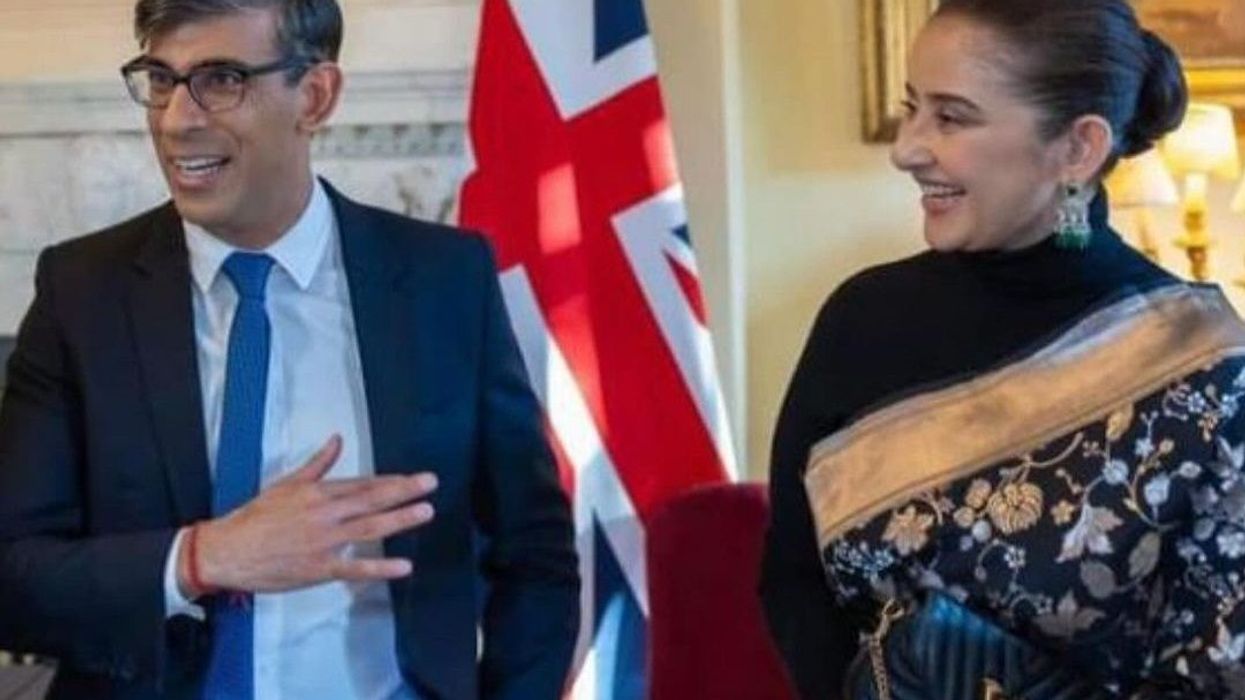Bollywood actress Manisha Koirala met Prime Minister Rishi Sunak at his residence to celebrate 100 years of United Kingdom-Nepal's friendship treaty.
The Heeramandi star took to her Instagram to share a series of photographs from the celebrations at Sunak's official residence 10 Downing Street in London.
"It was an honour to be invited to 10 Downing Street to celebrate United Kingdom - Nepal relations and 100 years of our friendship treaty. It was such a pleasure to hear the Prime Minister Rishi Sunak speak fondly of our country Nepal.
"I took the liberty of inviting the PM and his family to come trek to Everest Base Camp," the Nepal-born actress posted.
Koirala, 53, also said that it was surprising that many people at the event had watched her Netflix series Heeramandi: The Diamond Bazaar.
"Can you believe that most of the attendees had seen Heeramandi on Netflix and loved it? I was thrilled!!" the actress wrote.
Created by ace filmmaker Sanjay Leela Bhansali, Heeramandi: The Diamond Bazaar has emerged as one of the most-watched non-English streaming shows on Netflix.
Apart from Koirala, the series also stars Sonakshi Sinha, Aditi Rao Hydari, Sanjeeda Shaikh, Richa Chadha, Sharmin Segal, Fardeen Khan, Taha Shah Badussha, Shekhar Suman, and Adhyayan Suman, among others, in pivotal roles.
It follows the lives of courtesans and noblemen in pre-Independence Lahore and has received mixed reviews.




